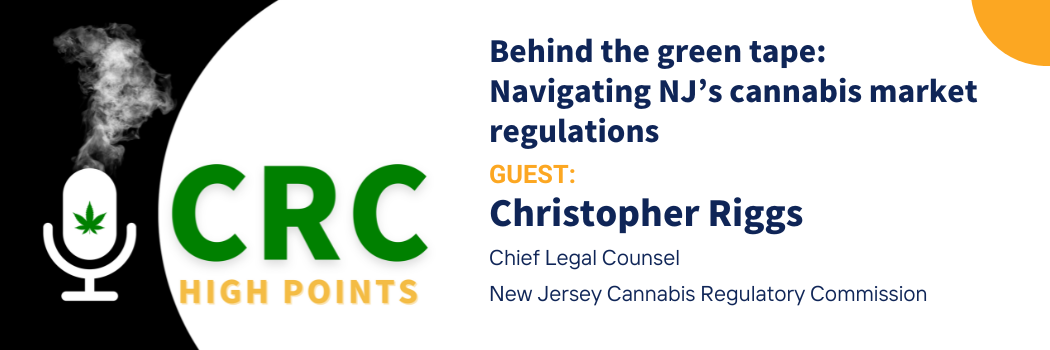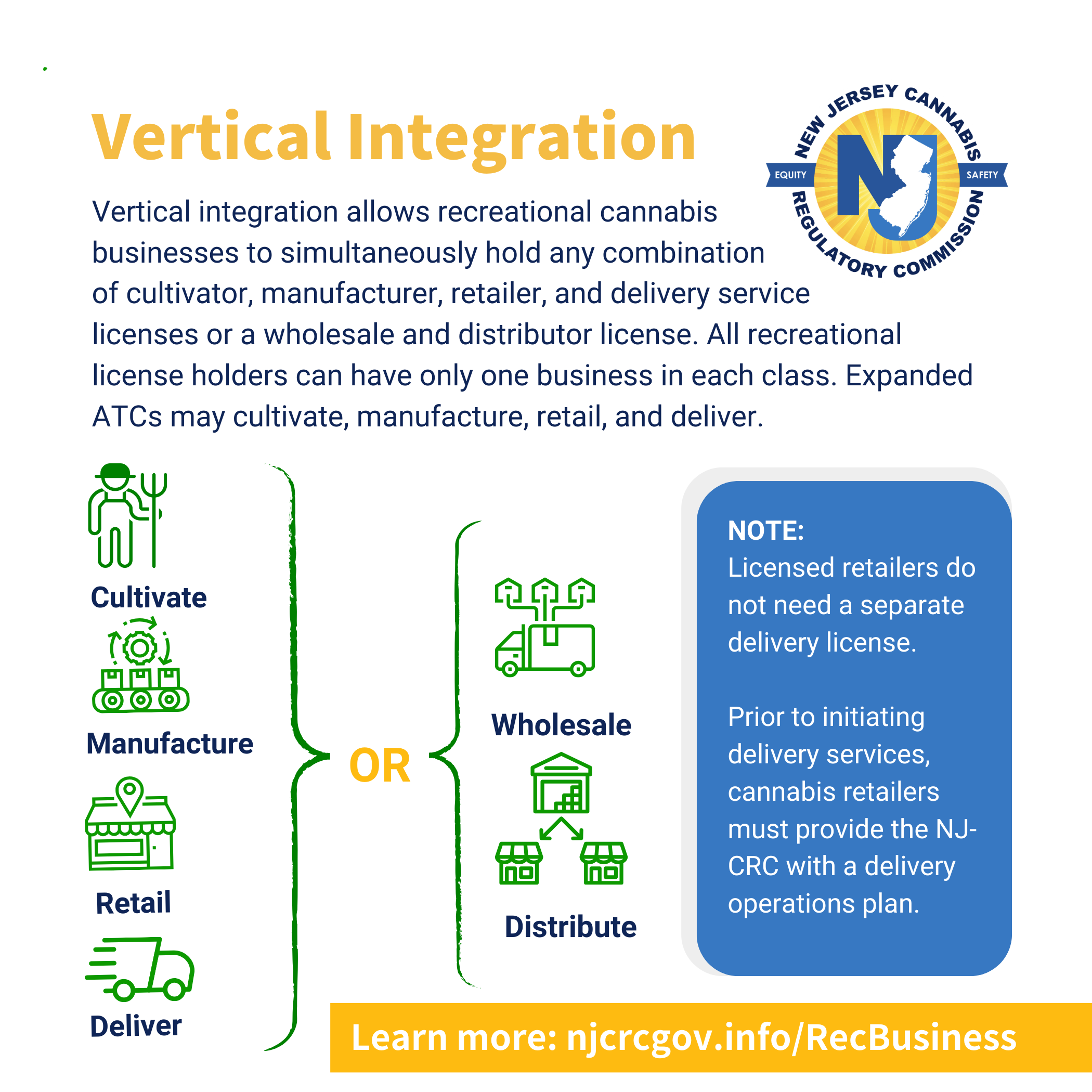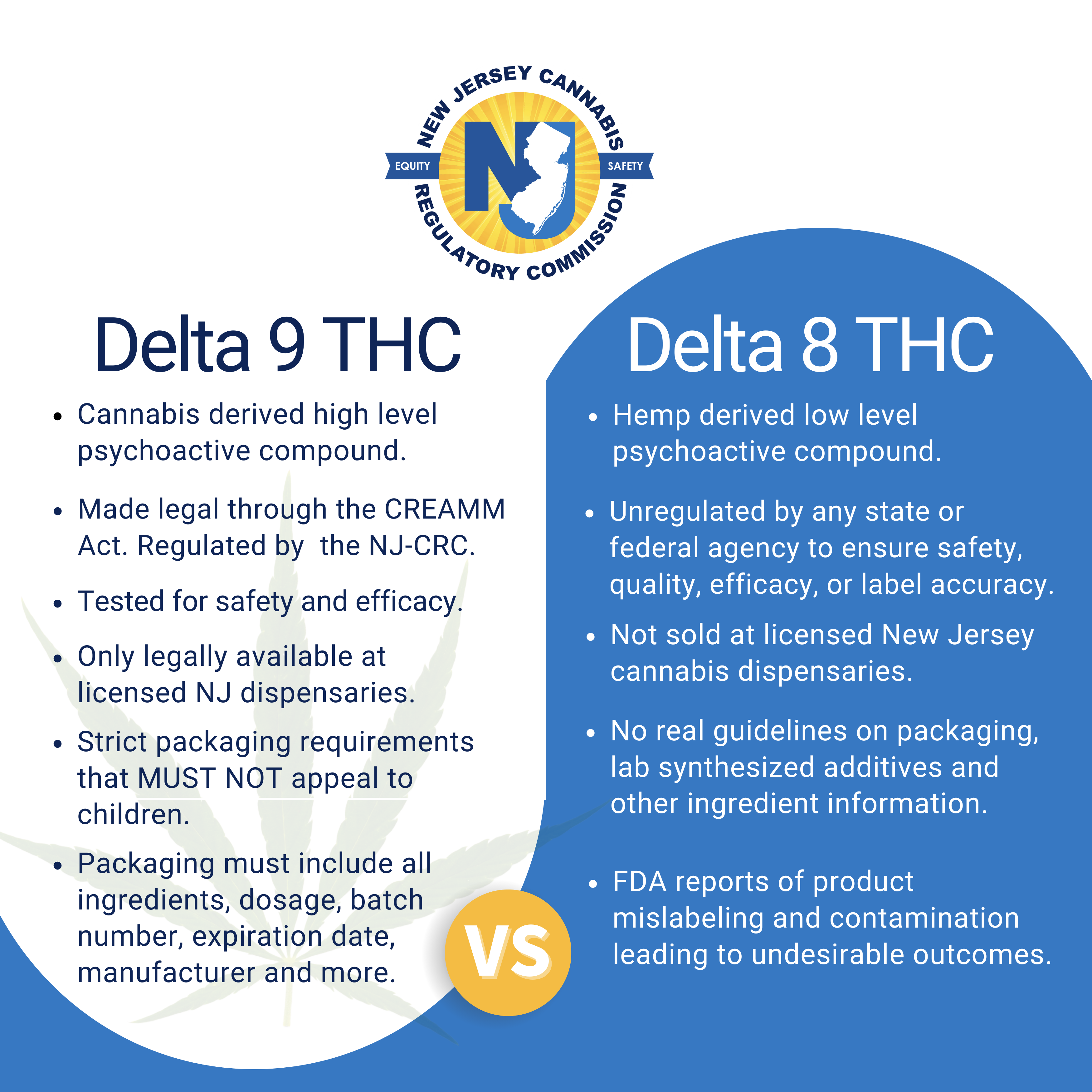
Behind the green tape: Navigating NJ's cannabis market regulations. Guest: Christopher Riggs, Chief Legal Counsel, New Jersey Cannabis Regulatory Commission
NJ-CRC Chief Counsel Christopher Riggs discusses the regulations that underpin the NJ cannabis market and clinical registration licenses.
Episode Notes: Laws, regulations, and guidelines discussed in this episode may have changed. To review the most up-to-date information, visit www.nj.gov/cannabis/resources/cannabis-laws.
Previous Blog Posts

High Hopes: Guiding budding businesses with the NJ-CRC
09/5/2025
Nana Amponsah, business development representative at NJ-CRC, talks about her role, as part of the Office of Diversity & Inclusion, in identifying challenges cannabis entrepreneurs face, providing assistance to applicants and new businesses wherever possible, and acting as a liaison between cannapreneurs and other state agencies that provide support. She also explains how NJ cannabis business development differs from other fields, emphasizing the continuous need for support.

Tips for SMART Gatherings This Holiday Season
11/26/2025
The holidays are a time for food, fun, laughter, and connecting with the people who make life sweeter. And as more adults in New Jersey choose to enjoy, or gift legal cannabis during the season, the NJ-CRC has launched its second safe-use campaign, S.M.A.R.T., to help keep celebrations (relatively) stress-free. S.M.A.R.T. is an easy way to remember the basics of responsible cannabis use, especially when travel is constant, roads are chaotic, homes are busy, and curious little ones are wandering.

Cannabis and PTSD
10/20/2025
Everyone feels pain at some point—whether it’s a sore back after a long day, a pounding headache, or stomach cramps that just won’t let up. But for some people, pain isn’t temporary. It’s a constant part of daily life. Anxiety disorders are the most common qualifying condition for New Jersey’s Medicinal Cannabis Program (MCP). However, various forms of pain also rank highly on the list of qualifying conditions. Specifically, chronic pain related to musculoskeletal disorders is the second most common condition, migraines are fourth, and chronic pain originating from visceral sources ranks fifth.
 Official Site of The State of New Jersey
Official Site of The State of New Jersey


